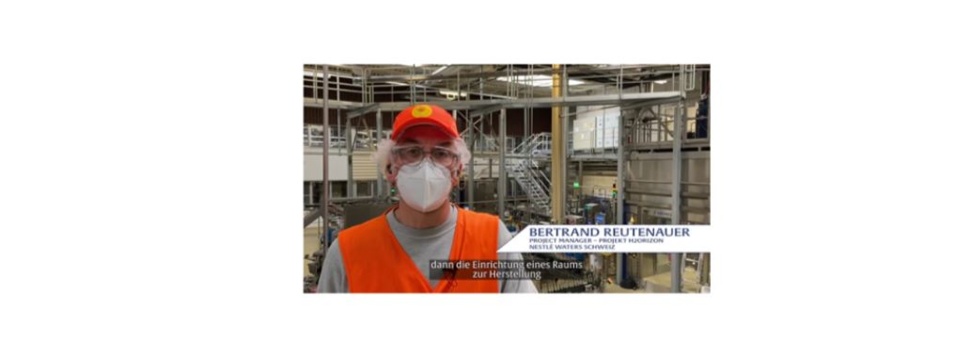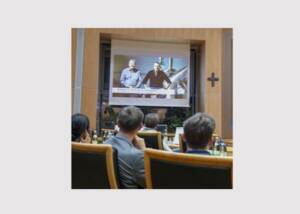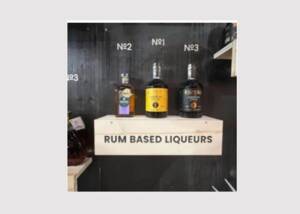Nestlé Waters modernizes factory despite pandemic
News General news
Nestlé Waters Switzerland has successfully completed its multi-year H2Orizon investment project despite the COVID-19 pandemic. Within three years, 25 million Swiss francs have been invested in the main plant in Treize-Cantons. The company is thus also making progress towards its climate targets. Mineral water brand HENNIEZ aims to reduce its greenhouse gas emissions to net zero by 2025 at the latest.

Since its launch in May 2018, Nestlé Waters Switzerland has implemented the H2Orizon modernization project in three stages:
- Since 2019, a single modern, more flexible and efficient line for glass containers has replaced two aging filling lines at the main plant.
- In early 2020, a new production room was installed for the production of flavored beverages, fruit juices and newly created beverages with more complex recipes.
- In the fall of 2020, the last bottles of Granini and hohes C fruit juice were filled in the old Henniez Village auxiliary plant. The production line was then dismantled and reinstalled at the main plant in Treize-Cantons, 2.5 kilometers away. The restart of fruit juice production marks the completion of H2Orizon. The old Henniez Village site has since been closed, with all employees continuing at the main plant.
Challenges of the COVID-19 pandemic well met
The COVID-19 pandemic presented new challenges for the final stages of the project. The relocation of fruit juice production and installation at the main site in Treize-Cantons took place in the middle of the second wave, putting the protection concept to the test. The health and safety of all employees is an absolute priority for Nestlé, so exceptional hygiene measures were introduced very quickly. The teams were split into small groups with diverse competencies, and technical support was also provided via video and programming steps were carried out digitally from a distance. As a result, despite the presence of up to 60 external employees at the site, the project was successfully completed without contagions on the site.
Multiple goals achieved simultaneously
"We are proud that we were able to complete the project quickly despite the Covid 19 pandemic. With this major investment of 25 million Swiss francs in our main site, we are achieving several goals at the same time," explains Alessandro Rigoni, CEO of Nestlé Waters Switzerland: "We are modernizing and making our production more flexible, increasing our innovative strength and making progress towards achieving our environmental protection goals. The sustainability of our business in particular is close to our hearts, as demonstrated by our ECO-Broye nature conservation program. That's why we want our HENNIEZ brand to be carbon-neutral by 2025 at the latest."
The local council of Henniez also expresses its satisfaction: "The project is a clear commitment to our region and to the jobs at the plant. And our village has been exposed to significantly less truck traffic since the closure of the old Village factory."
Investing in sustainability for HENNIEZ's climate neutrality by 2025.
The H2Orizon project is an investment in the sustainability of plants and processes. As a result of the modernization, 25,000 cubic meters of water will be saved per year, and CO2 emissions will be reduced by up to 250 tons. In addition, the concentration of production at the main plant in Treize-Cantons means that around 1,000 fewer trucks pass through the village of Henniez each year.
With the implementation of the H2Orizon modernization project, Nestlé Waters Switzerland is taking an important step toward implementing the Climate Action Plan that Nestlé presented in December 2020. By 2050, the Nestlé Group will reduce emissions across the company to net zero, and the HENNIEZ mineral water brand is expected to achieve this goal by 2025 at the latest.
Increased competitiveness and new products
With the realization of H2Orizon, Nestlé Waters Switzerland is increasing its competitiveness in order to be able to respond even more flexibly to changing customer and consumer demands, while at the same time meeting future production needs even better. It also increases the company's ability to efficiently adapt to future production needs.










